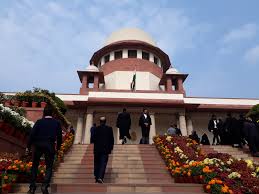Indian Penal Code, 1860 –Section 302 – Criminal Procedure Code, 1973 – Section 299 – Indian Evidence Act, 1872 – Section 33 – Murder – Recording of evidence in absence of the accused – Relevance of certain evidence for the proof of facts in issue.
Key contentions of the appellant’s counsel include challenges to the admissibility and reliability of witness statements, particularly that Indian Evidence Act, 1872 – Section 33of Ashok Kumar Pathak, as well as the confession note and handwriting expert’s report. The appellant’s counsel argued that the circumstantial evidence presented was insufficient to conclusively establish guilt.
The Court carefully examined the submissions and evidence on record. It noted that the trial court had properly recorded the statement of Ashok Kumar Pathak under Section 299 CrPC in the absence of the accused, establishing his presence and interaction with the deceased on the night of the incident. The court found the evidence presented, including witness testimonies, confession note, and handwriting analysis, to be credible and sufficient to establish the guilt of the accused beyond a reasonable doubt.
In conclusion, the Court affirmed the judgment of the trial court and the High Court, dismissing the appeal and confirming the conviction of the accused appellant for the murder. (Para 23, 34, 36, 48, 51)
SUPREME COURT OF INDIA
2024 STPL(Web) 334 SC
[2024 INSC 385]
Sukhpal Singh Vs. Nct Of Delhi
Criminal Appeal No(S). 55 OF 2015-Decided on 07-05-20
https://stpllaw.in/wp-content/uploads/2024/05/2024-STPLWeb-334-SC.pdf







